Linux
Latest

Linux gaming is on a life-support system called Steam
In September 2013, Valve founder Gabe Newell gave a rare, 20-minute presentation at LinuxCon. He called Linux "the future of gaming," predicting that as the industry became more user-driven and connected across both distances and devices, an open-source foundation would be the only way to keep pace with coming innovations. With the standard, proprietary operating systems powering Windows, Mac and consoles, Newell argued, all control over content, pricing and change rested in the hands of billion-dollar corporations. Linux offered a chance for all players and developers to shape the marketplace.

Firefox offers clearer, more flexible privacy controls
Mozilla has made privacy a focus in Firefox for years, but it knows that only matters if you're actually comfortable using those privacy features. To that end, it's releasing a desktop update that's all about simplifying those controls while simultaneously offering more powerful tools. Firefox 65 includes a reworked Content Blocking section that gives you three options: Standard (blocks known trackers in private sessions), Strict (blocks those trackers in all sessions) and Custom. You can be as hands-off or specific as you like, and you don't have to compromise privacy in the process.

NSA will release a free tool for reverse engineering malware
The NSA has frequently been accused of holding on to info that could potentially improve security, but this time it's being a little less secretive. The agency is planning to release a free reverse engineering tool, GHIDRA, in tandem with the RSA Conference on March 5th. The software dissects binaries for Android, iOS, macOS and Windows, turning them into assembly code that can help analyze malware or pinpoint questionable activity in otherwise innocent-looking software.

Chrome now blocks ads on deceptive websites
Google is acting on its promise to kick deceptive websites to the curb. The newly released Chrome 71 now blocks ads on "abusive" sites that consistently trick users with fake system warnings, non-functional "close" buttons and other bogus content that steers you to ads and landing pages. The sites themselves won't lose access the moment Google marks them abusive, but they'll have 30 days to clean up their acts.

Intel's 'neural network on a stick' brings AI training to you
Ahead of its first AI developers conference in Beijing, Intel has announced it's making the process of imparting intelligence into smart home gadgets and other network edge devices faster and easier thanks to the company's latest invention: the Neural Compute Stick 2.

Chrome will block all ads on consistently deceptive websites
Google is stepping up its fight against websites that use shady pop-ups and redirects to ensnare web users. As of December, Chrome 71 will block all ads on the "small number" of sites that consistently use these tactics, whether they're producing fake system errors or trying to steer you to unwanted sites. It won't yank ads right away when Google determines that something is rotten, but there won't be much time -- after Google flags issues in an Abusive Experiences report, site owners will have 30 days to mend their ways.
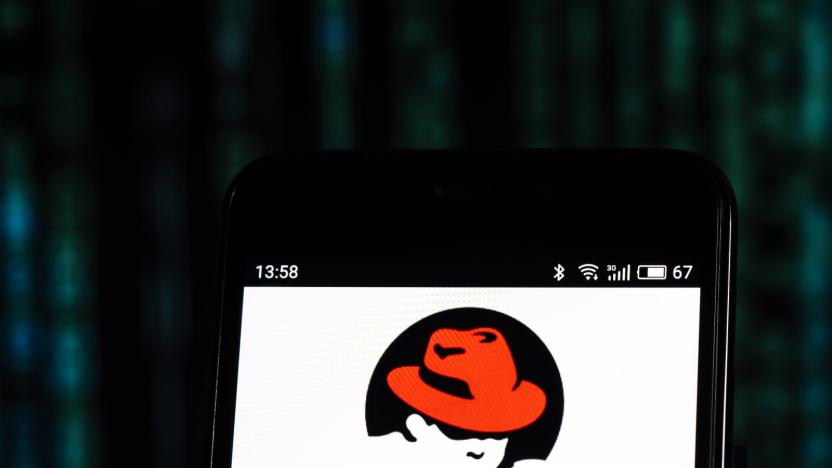
IBM buys Linux giant Red Hat to thrive in the cloud
IBM isn't a stranger to Linux by any stretch, but it might just become one of the platform's strongest supporters in the near future -- and shake up the cloud landscape, for that matter. IBM has announced a deal to buy Linux giant and open source enterprise software developer Red Hat for the equivalent value of $34 billion. Provided it clears regulatory hurdles, the acquisition should close in the second half of 2019.

Microsoft open-sources 60,000 patents to help Linux avoid lawsuits
Microsoft announced that it's joining the Open Invention Network, an open-source patent group that's dedicated to protecting linux from lawsuits. And in the process, Microsoft has made 60,000 of its patents open source. This is a surprise to many in the developer community as Microsoft has been notoriously protective of its patents. Android and Samsung have even had to pay billions because of infringements, so Microsoft has a vested financial interest in keeping a tight grip. But Microsoft wants to change its reputation, and show how developer-friendly it can be. Developers "want to deploy technologies at the edge--on any device--that meet customer needs," said Eric Anderson, corporate vice president and deputy general counsel. "We also learned that collaborative development through the open source process can accelerate innovation." There are major benefits to being a part of OIN. Companies and developers get access to both OIN-owned patents and cross-licenses between other OIN licensees, sans royalty. Currently, OIN provides a license platform for "roughly 2,650 companies globally," including big names like Google, IBM, NEC, Philips, Sony, and Toyota. For you and me, that means less legal headache for developers--especially those that don't have giant legal teams at their disposal--and potentially faster software releases for all of us. This isn't the first time Microsoft has loosened its hold on patents. The company made a major change two years ago with its Azure IP Advantage Plan, to protect users from patent trolls. And earlier this year, it implemented a new policy saying companies that work with Microsoft on technology solutions could hold on to any patent rights that come out of that partnership. The example used was that of a South Korean hospital and a motion-tracking AI created to collect data on surgeon movements during an operation. The tech was developed at Microsoft, but the hospital held on to the intellectual property. Either way, this move by Microsoft is a major step forward for developers everywhere.
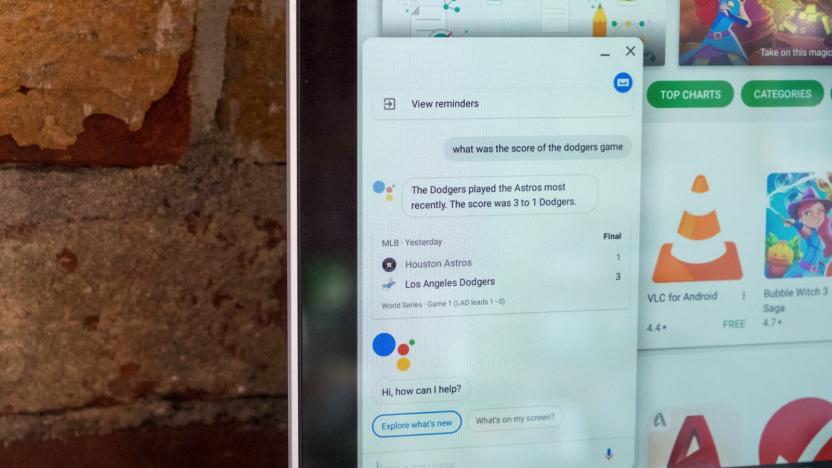
Chrome OS revamp delivers a new look and Linux app support
Now that the Chrome browser has received a makeover, it's Chrome OS' turn... and it's about more than just feature parity. Google has released a Chrome OS 69 update that introduces the updated Material Design visuals alongside a few features that could make your Chromebook decidedly more enticing. Most notably, there's now support for running Linux apps. You'll need a supported machine (a handful of machines from Acer, ASUS, HP, Lenovo, Samsung and Google itself). Still, this could be more than a little helpful if you want to run a conventional desktop app or command line terminal without switching to another PC or a virtual environment.
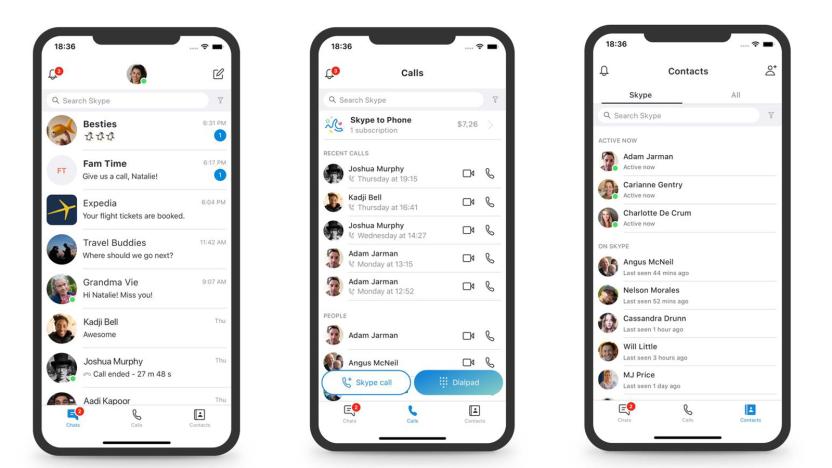
Skype drops Snapchat-like feature since people weren't using it
Microsoft's about-face on Skype now extends to one of its not-so-subtle attempts to ride the social media bandwagon. As part of a broader app update, Microsoft has revealed that it's axing its Snapchat-like Highlights feature for mobile users in a bid to focus on core features like calls and chats. Simply put, people weren't using it -- the Stories-style posts "didn't resonate with a majority of users," the Skype team said. You'll have until September 30th to download your own Highlights if you want to preserve them for posterity.
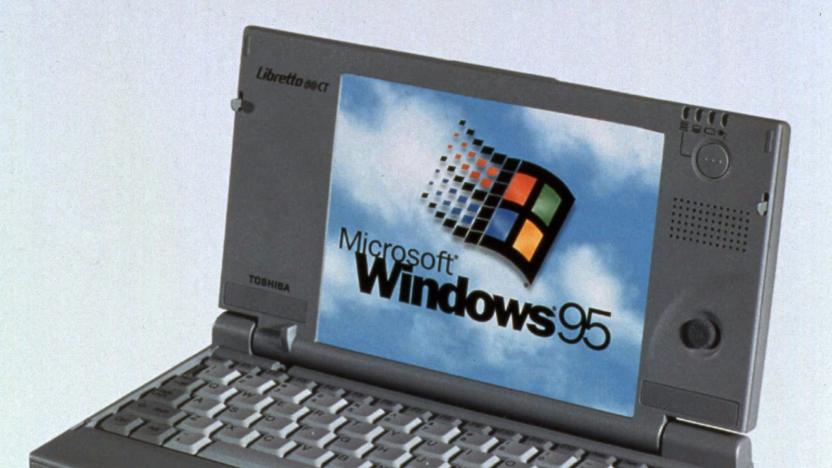
Windows 95 app brings nerd nostalgia to macOS, Windows and Linux
If you're nostalgic about old tech and software, then get ready: Slack developer Felix Rieseberg has created an app that allows you to run Windows 95 on Windows, macOS and Linux (which is perhaps more practical than running it on an Apple Watch). If you're interested in downloading it, you can grab it over at GitHub.

Steam Play for Linux now lets you play Windows games
This week, Valve announced a new beta version of Steam Play that includes a Windows emulator for Linux. This project is part of Steam's effort to bring more compatible games to Linux, allowing those users to play a larger subset of the service's back catalog. The team also hopes that this new feature will make it easier for developers to create Linux-compatible versions of their games.

Skype launches end-to-end encryption for calls and texts
After months of work, Skype's Private Conversations are now a practical reality. Users on Android, iOS and desktop platforms can now switch on end-to-end encryption for both calls and text chats. If your intended recipient accepts your invitation, the technology will better shield your conversations from eavesdroppers hoping to intercept chat traffic or snoop on your device. It'll even hide content in notifications and the chat list to prevent someone from casually glancing at your sensitive discussions.

Valve may offer tools to play Windows games on Steam Machines
Valve's Steam Machine platform hasn't really taken off, and it's not just because of the hardware. When few developers are willing to release Linux-native versions of games to run on Steam OS, there just isn't a lot to play. Thankfully, the company may have a way to bring more titles to the platform... sort of. Reddit users have pointed out that Steam's graphical interface files now include a section with not-so-secret references to a Steam Play feature that would auto-load "compatibility tools" to play games "built for other operating systems." In other words, Steam OS might include some kind of emulation.
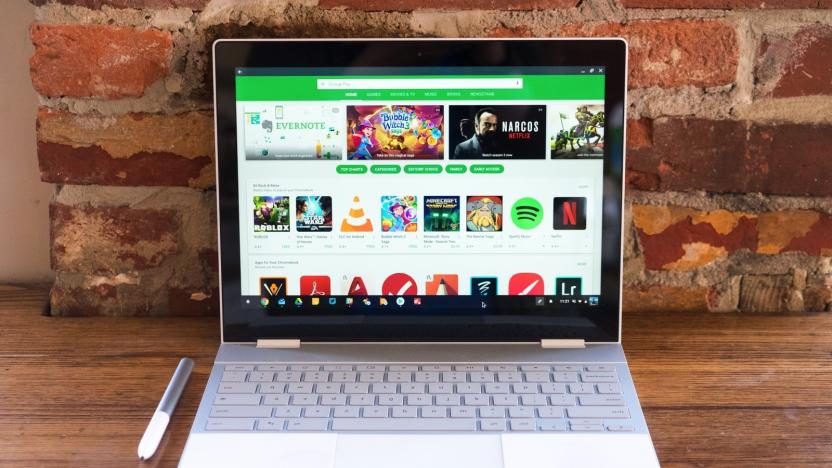
Chrome OS update makes installing Linux apps easier
With the power of tools like Crouton, anyone so inclined can already run Linux on a Chromebook. The process is a bit fiddly, however, and requires that you enable developer mode -- which carries potential security risks. Now, thanks to a recent Chrome OS update, you'll be able to launch .deb (Debian) packages minus such hassles.

Firefox experiment suggests articles based on your web history
You can already save articles for later viewing in Firefox thanks to Pocket integration. That's not going to help you find articles, however, and it's all too tempting to stick to the same old sites for your reading habits. Mozilla wants you to be a little more adventurous. It's introducing a new Test Pilot experiment, Advance, that recommends stories based on both your current page and recent web history. The extension uses machine learning technology from Laserlike to identify common traits in the trusted sites you visit and offer new pieces in a sidebar. If you've been reading many football articles, for instance, Firefox may suggest a piece about a recent player trade.
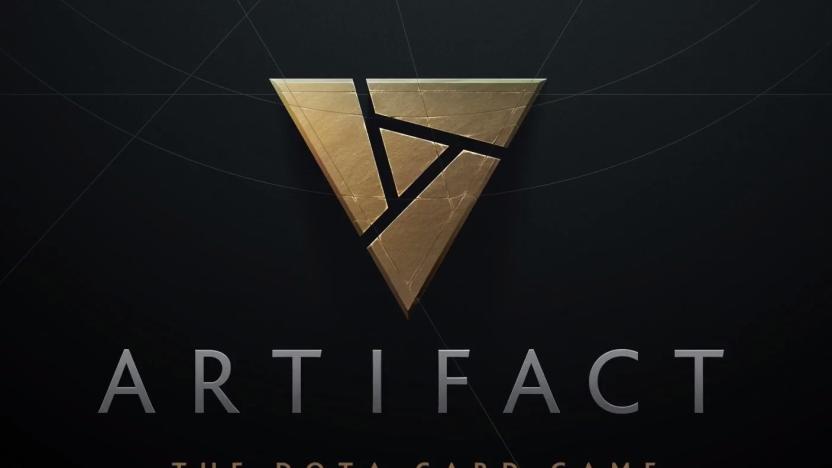
Valve's pay-to-play 'Dota' card game will be released November 28th
Valve's next title Artifact, a trading-card game, will be released November 28th. Digital trading card games like Gwent from Witcher developer CDProjekt Red and Hearthstone from Blizzard have been doing surprisingly well lately. That's probably somewhat because they're free to play. Artifact, based on Valve's free-to-play MOBA, Dota 2 will not be. Instead, a pair of 54-card starter decks and ten 12-card booster packs will set you back $20, according to Ars Technica.

Firefox is the latest browser to block autoplaying web audio
Firefox is finally joining the ranks of web browsers that block autoplaying web sounds. Mozilla's latest Nightly builds for Firefox now include an option to mute autoplaying audio, hopefully saving you from jumping out of your seat when an obnoxious video ad makes its presence felt. It's finer-grained than Chrome's recently removed automatic muting, too. You can turn the feature off entirely, force it to ask for permission and make exceptions for specific sites.

Google Chrome prevents sites from launching Spectre-like attacks
If you're using Chrome, you now have fewer reasons to worry about Spectre-style security threats. Google has revealed that Chrome 67 for desktop and the matching Chrome OS release enable a previously experimental Site Isolation feature that reduces the chances of intruders using speculative execution side-channel attacks like Spectre. The technique limits the web renderer process to content from a single site, preventing an attacker's page from sharing malicious code through an innocent page (say, though cross-site pop-ups or remotely stored scripts). In theory, sinister types can't swipe passwords or other sensitive data while you're visiting otherwise innocuous sites.

Google's refreshed Chrome design is nearly here
Chrome's design has remained largely the same for a long time, but earlier this year Google started hinting at a complete "Material Design" overhaul. Now, we've got a better idea of what this might finally look like. As the company gets even closer to updating the browser's UI, it's today rolled out an update to Chrome Canary on Windows, Linux and Chrome OS that enables the new Material Design UI by default.






